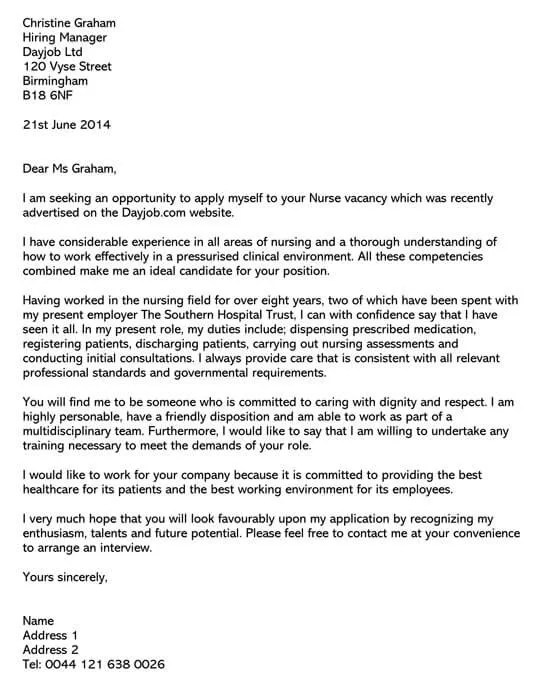Crafting a Compelling Nursing Cover Letter
A well-crafted nursing cover letter can be your golden ticket to landing your dream job. It’s your first impression, a chance to showcase your skills, experience, and passion for nursing. Unlike a resume, which is a factual record, a cover letter allows you to tell a story, connect with the hiring manager, and express why you’re the perfect fit. Focusing on these key tips will greatly increase your chances of success. Always remember to tailor each letter to the specific job and facility you’re applying to, as this demonstrates genuine interest and attention to detail. It is essential to make the content unique to grab the hiring manager’s attention.
Highlighting Your Skills and Experience
Your cover letter should immediately highlight your core nursing skills and relevant experience. Think beyond a simple list; instead, illustrate your abilities with concise examples. For instance, if you excel at patient communication, describe a situation where you successfully explained a complex medical procedure in a way that eased a patient’s anxiety. If you have experience in a specific area like critical care or pediatrics, make it clear. Quantify your experience whenever possible. Instead of saying “managed patient care”, say “managed care for a 10-bed unit”. This provides a concrete picture of your capabilities and shows the hiring manager your value.
Showcasing Relevant Qualifications
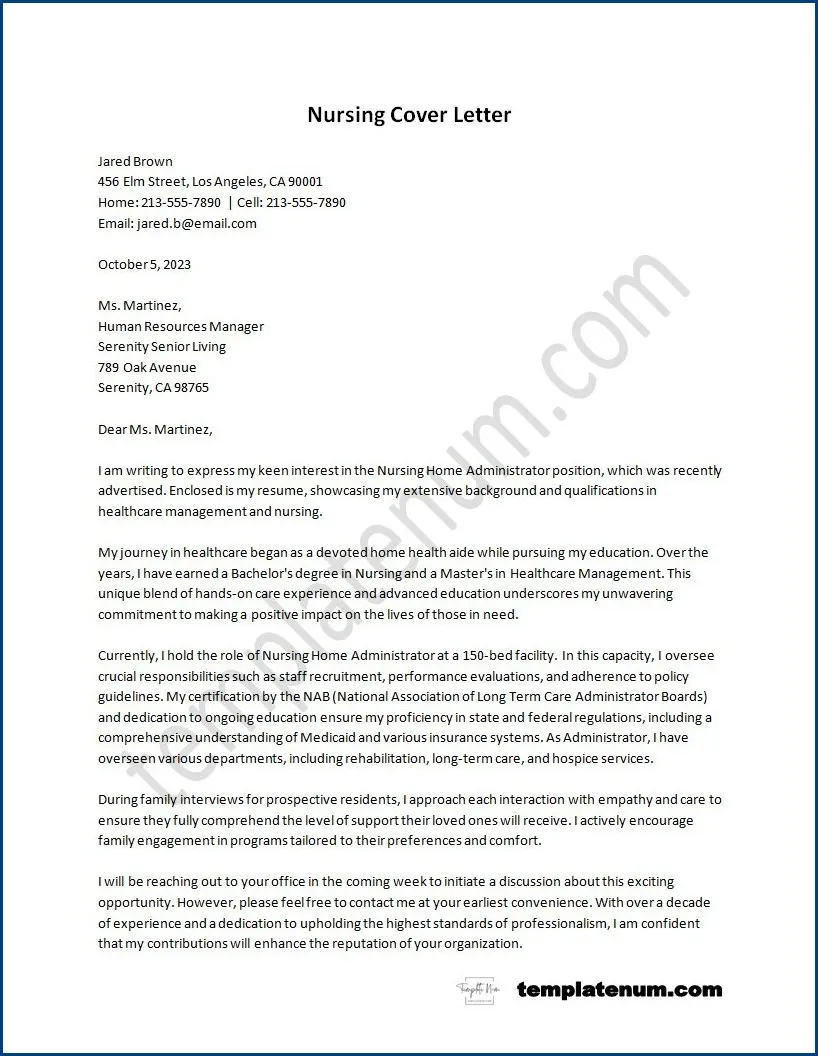
Emphasize the qualifications that align with the job description. Include your nursing license, certifications, and any specialized training you’ve received. If the job requires experience with electronic health records (EHR) systems, be sure to mention your proficiency with those systems. This ensures the recruiter that you meet the baseline requirements. Don’t assume that the recruiter will automatically know what you’re capable of. Explicitly stating your qualifications saves the recruiter time and indicates your understanding of the requirements of the role. When providing information about the qualifications, be very specific about your education.
Quantifying Your Achievements
Numbers speak louder than words. Whenever possible, use quantifiable data to showcase your achievements. Did you improve patient outcomes? Did you reduce readmission rates? Did you receive any awards or recognition? Provide specific metrics that demonstrate your impact. For example, you could mention, “Implemented a new fall prevention protocol that reduced patient falls by 15% within six months”. Such concrete data demonstrates your effectiveness. Your cover letter is where you can really show what you’ve achieved and what you’ve learned. When using numbers make sure to include the dates of the specific achievements.
Tailoring Your Letter to the Job
Generic cover letters are easily spotted and often discarded. Customize each cover letter to the specific job and facility. This shows the hiring manager that you’ve taken the time to understand their needs. Research the healthcare facility and the role you’re applying for. Mention specific aspects of the job description that resonate with your skills and experience. Customize the letter based on the type of facility, whether a hospital or a clinic. Tailoring the letter shows you are genuinely interested in the position and that you have something special to offer the specific facility.
Researching the Healthcare Facility
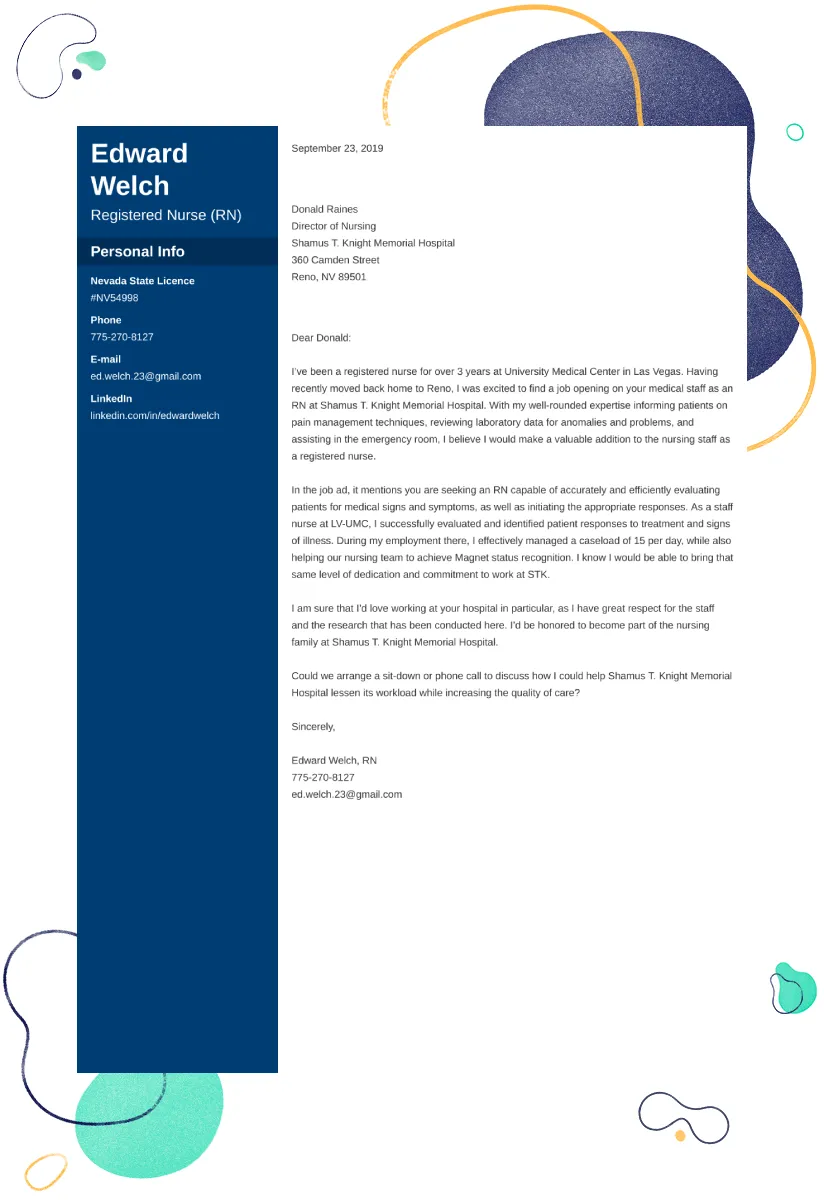
Before you start writing, thoroughly research the healthcare facility. Understand their mission, values, and any recent news or initiatives. Mentioning specific aspects of the facility in your cover letter shows you’ve done your homework and are genuinely interested in working there. Mention their community involvement, recent awards, or any programs that align with your professional values. This level of personalization can significantly improve your chances of getting an interview. Your research should inform the tone and content of your cover letter, making it relevant and engaging.
Using Keywords from the Job Description
Carefully review the job description and identify key skills, qualifications, and keywords. Incorporate these keywords naturally throughout your cover letter. This helps your application get noticed by applicant tracking systems (ATS), which many healthcare facilities use. Make sure to use relevant keywords. When using keywords, do it naturally, so that it doesn’t look like you’re just stuffing the letter with them. The goal is to make the content readable and easy to understand, while incorporating the important keywords. The judicious use of keywords will help you stand out.
Formatting and Structure for Readability
A well-formatted cover letter is easy to read and leaves a positive impression. Use a professional font, such as Times New Roman, Arial, or Calibri, and maintain a consistent font size (11 or 12 points). The content must be properly structured to create a good first impression. Break up large blocks of text with short paragraphs and use bullet points to highlight key skills or achievements. The goal is to make your letter visually appealing and easy for the reader to digest. Poor formatting makes the recruiter do extra work and this will result in immediate discarding.
Choosing the Right Font and Layout
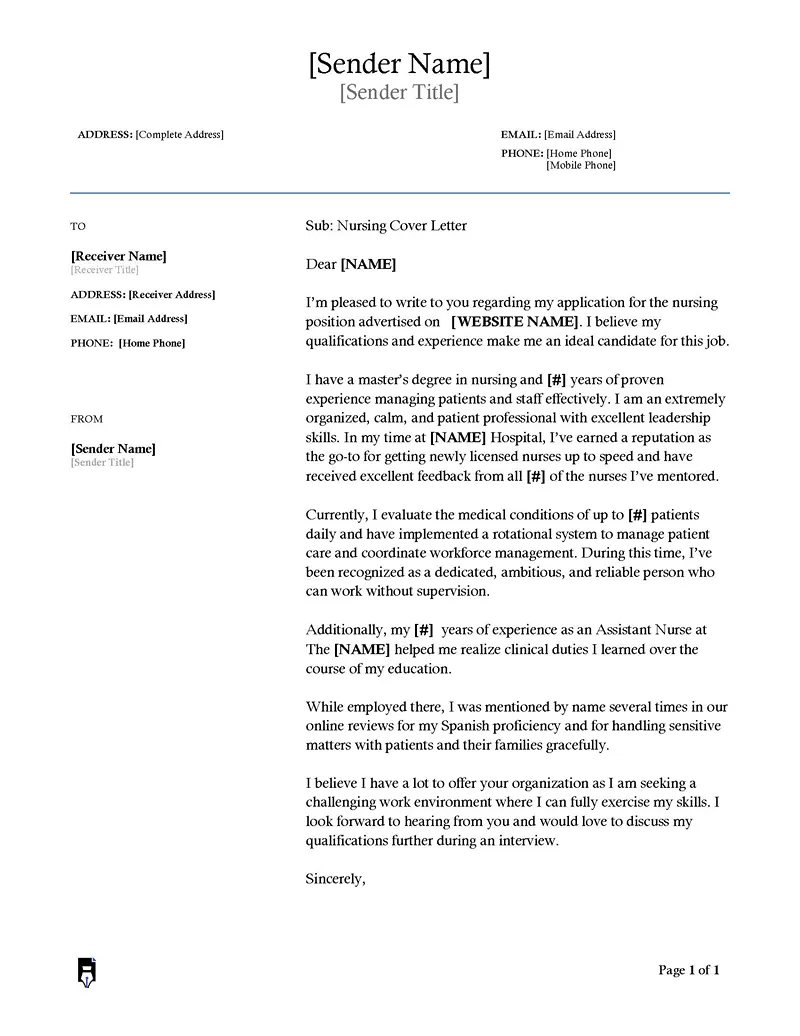
Choose a font that is easy to read. Avoid overly decorative or unusual fonts that can distract the reader. Use a clean, professional layout with clear headings and sufficient white space. Maintain consistent margins (typically 1 inch on all sides) and use single or 1.15 line spacing. A well-formatted cover letter shows you have attention to detail, which is crucial in the nursing profession. Select a readable and visually appealing layout to make the letter stand out. The layout should complement the overall message of the cover letter.
Keeping It Concise and Focused
Keep your cover letter concise and focused. Aim for one page, or at most, one and a half pages. Highlight the most relevant information and avoid unnecessary details. Get straight to the point and emphasize what you can offer the employer. The reader is likely very busy, so make sure your message is easily understood. Be direct and avoid redundancy. You should use every word intentionally. Only include the information that really matters and is related to the job.
Proofreading and Editing Meticulously
Typos and grammatical errors can undermine your credibility. Proofread your cover letter carefully before submitting it. Consider the writing quality carefully. Review the content for grammar, spelling, and punctuation errors. Check the letter to make sure that you are writing the right words. Use spell check and grammar check tools to catch common mistakes, but don’t rely on them entirely. Ensure that the text flows smoothly and is easy to read. Thorough proofreading is essential to show you care about detail.
Checking for Grammar and Spelling Errors
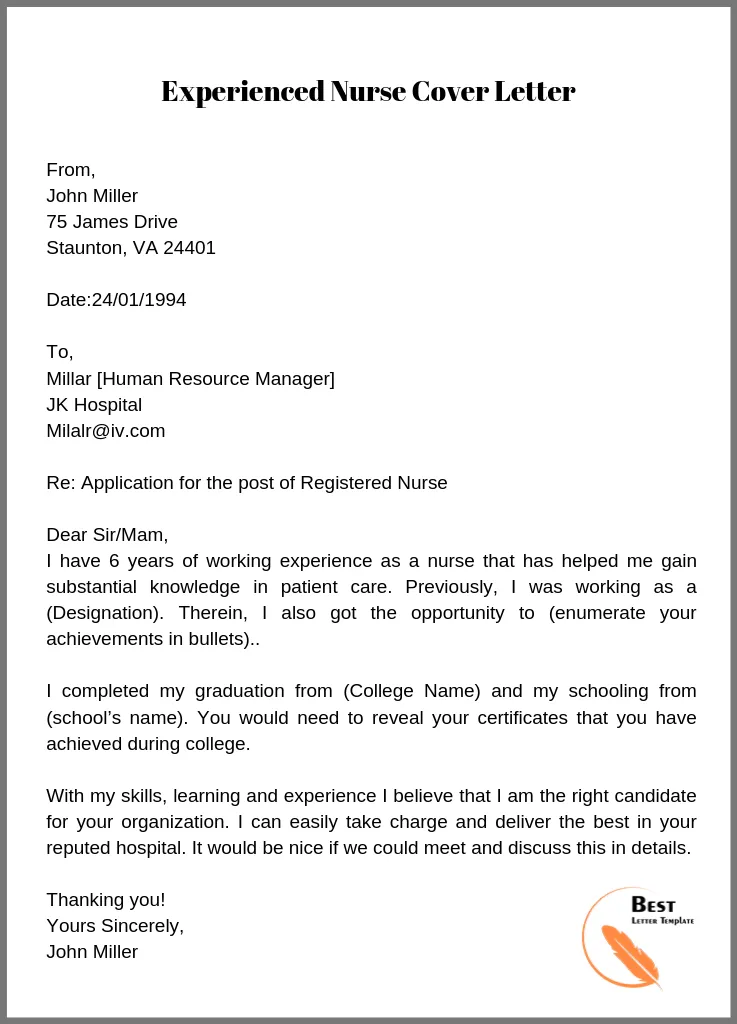
Carefully review your cover letter for any grammatical errors and spelling mistakes. Even minor errors can create a negative impression. Use grammar check tools, but always review the results manually. Proofread at least twice, ideally on different days, to catch any mistakes you might have missed. Mistakes are often a sign of carelessness. Poor grammar and spelling show a lack of attention to detail, which is a critical skill in nursing. Double-check every word, so that the recruiter knows you care.
Seeking Feedback from Others
Ask a friend, family member, or career advisor to review your cover letter. A fresh pair of eyes can catch errors or suggest improvements that you might have missed. Their feedback can help you refine your letter and make it even more effective. Ask them about the clarity of your writing and your ability to effectively convey your skills. This can provide valuable insight. Getting another perspective can help refine the overall message and make the cover letter even more appealing. Ask for their honest thoughts and be open to their suggestions.
Final Thoughts and Next Steps
Writing a compelling nursing cover letter takes time and effort, but it’s an essential step in the job application process. By following these tips and tailoring your letter to each job, you can significantly increase your chances of getting an interview. Remember to highlight your skills, quantify your achievements, research the facility, and proofread meticulously. Your cover letter is your chance to shine. Your next step is to submit your application and start preparing for the interview. Good luck with your job search.
